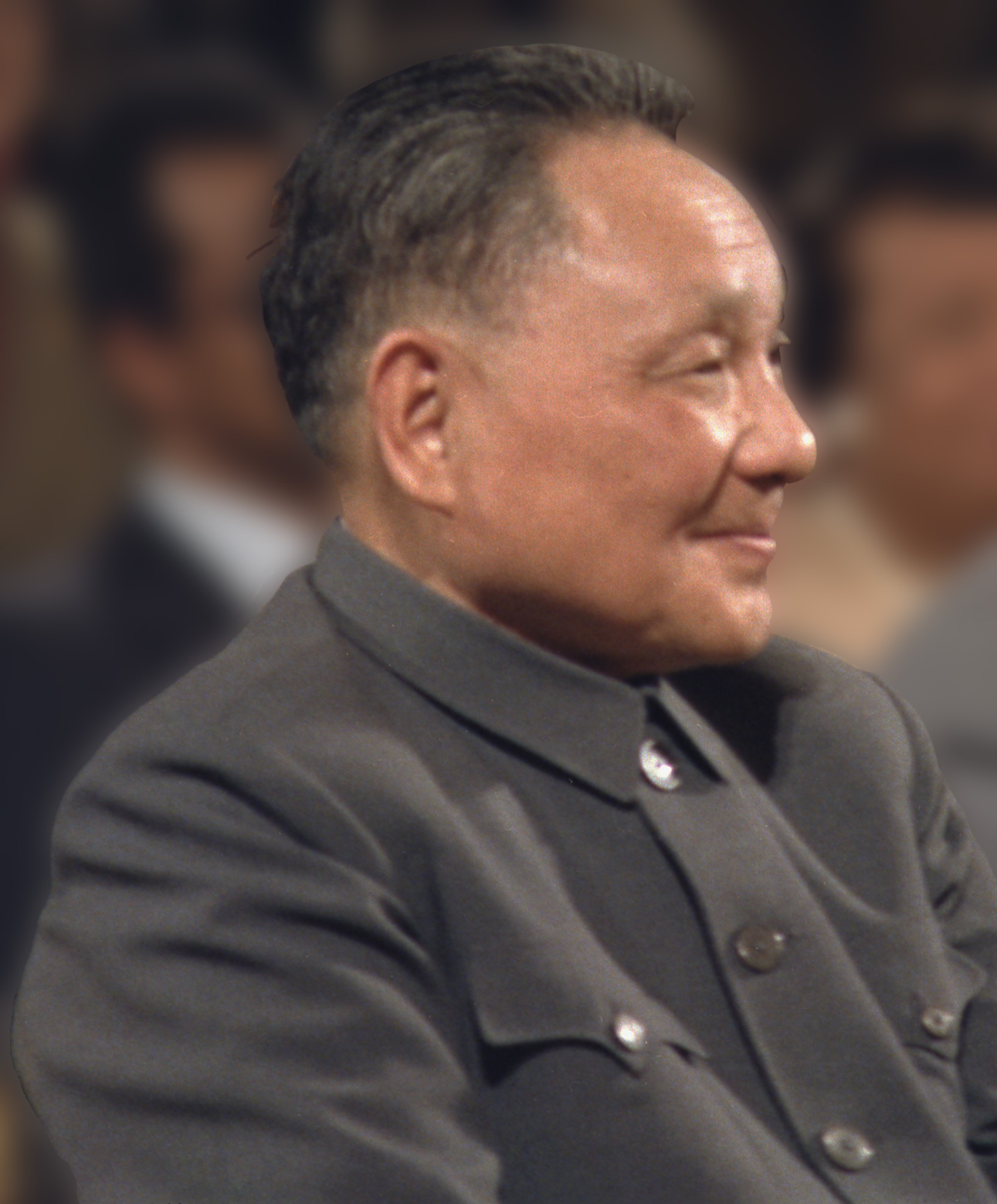Today's readings all have to do with the growth of China's military and its meaning for the international system. Next week will focus specifically on China's relationship to Taiwan, but even though my readings today also touched on that issue, it's not the focus.
My readings today were: What China Will Want: The Future Intentions of a Rising Power Jeffrey W. Legro
China, Xinjiang, and the Transnational Security of Central Asia
Kerr, David; Swinton, Laura C Critical Asian Studies, vol. 40, no. 1, pp. 89-112, Mar. 2008
Long Shot and Short Hit: China as a Military Power and Its Implications for the USA and Taiwan, Wei-chin Lee Journal of Asian and African Studies 2008; 43; 523
David M. Lampton, “The Faces of Chinese Power” Foreign Affairs, January/February 2007
Taking them one at a time:
1) Legro: I found this article a useful antidote to the too-common refrains of both "China just want to make money!" and "China wants to rule the world!". The basic thesis is simply that what China wants right now is less important than what China will want as it continues its growth, and that what China will want is going to be contingent on what kind of results they get from the actions they take. He points out that in just the last two hundred years the world has seen China go from "isolationist" to "intergrationist" to "revisionist" and back to "integrationist."



Four faces of Chinese leadership
Legro goes on to say that Chinese intentions are made by the same analytical and psychological processes that all states go by. Right now, China is strongly intergrating into the international system, supporting most of the world's institutions and even contributing to international peacekeeping forces.
Legro states that, fortunately, as long as things go well for China this is likely to continue. He is particularly clear that, contra realism, it is not power that is likely to change the intentions and preferences of Chinese leadership, but anythign that suggests that the current integrationist approach is not working. That is, anything that causes China to stop accumulating power could be seen as proof that the integrationist approach is fundamentally misguided. Even this will require some other factors as well, however.
On the other hand, he is clear that Chinese intentions could change anyway, and that the US (and Western powers in general) should support pro-integration forces within China and not take steps to alienate them. I was impressed to see Legro specifically mention the Versailles Treaty that ended World War I, that is seen by China has having rewarded Chinese participation in World War I by giving German concessions in China...to Japan.
However, he is horribly vague on what this means. He points to US and UK efforts to promote internationalism, even in the aftermath of WWI, but he doesn't apply it to the Chinese context. In the end, this is a fascinating but frustrating theoretical look at preferences, without much actual help. The one exception to this is that he explicitly suggests not trying to "hedge" with China by building up military power in the area, at least without making sure that this would not just boost the ideological position of the hardliners.
Kerr and Swinton: I've long been fascinated with Muslim China, especially after a trip to Xi'an in my undergraduate years. I've not yet made it Xinjiang, but I try to read up on it as much as possible. I was therefore really looking forward to this piece, especially as China's relationship with Central Asia is often overlooked in favor of its relationships with the greater powers of East Asia and the US. While we often define "Central Asia" as just the former Soviet Muslim republics, it really extends well into China:

However, this reading was actually very dry and theoretical. There were still some interesting ideas. In particular, it is interesting to see how Chinese state identity plays deeply into the issues with Xinjiang and Chinese Central Asia. The players in China that want to play up that China is a multi-ethnic, multi-national modern state are deeply at odds with those that see China in a more nationalistic light as the home of the Han people and civilization. The interplay and tension between these concepts plays out over and over, with the government first sponsoring mosques and cultural events, and then in the name of Marxism sponsoring their destruction as relics of the "old thinking".
More important for security thinking is probably the way that West China (notably Xinjiang and Tibet) have not gained nearly as much from the liberalization of the last few decades as the rest of China. Most of China's extreme poverty is in this part of the country, and health problems are much greater. What development did exist there previously was deeply damaged by mismanagement during the "East Coast First" policy of the early years of liberalization. This has led to great mistrust, and accusations by Uyghur groups that China is trying to colonize the area, in ways similar to European colonization of Africa and Asia.
At the same time, the Islamic community in China is growing, and forming linkages with other Central Asian Islamic communities. Both Pan-Islamism and Pan-Turkism are starting to find roots in Xinjiang, and both of these ideologies directly butt against any kind of service to the state. China rails against both as corruptions of Islam or as founded on fantasies, but it does nothing to stop the appeal of them.
China has now made the fight against the forces of "separatism, religious extremism, and terrorism" a large part of its overall foreign policy, forging close links through the Shanghai Cooperation Organization to deal with this very issue. It is important to note that the SCO is mostly important for this purpose, and not as some kind of "anti-US" alliance that some have suggested.
The short version is this: China is a growing power, with a large part of its territory and natural resources in a territory wracked by competing nationalisms and a non-Westphalian structure, and a large part of China's attention and worry will be devoted to keeping it from blowing up. (Which, incidentally, seems like it could happen at any minute.)
Lee: Lee does a great job talking about the different aspects of Chinese military strengthening, before just re-iterating all of the traditional neo-realist talking points. It includes such bits as "should the US decide to cut off China's overseas oil lifeline...China might feel that its legitimate right to energy security has been severely compromised by the US." Really? There is no discussion here of WHY the US might make such a move, or why China would expect such a move from the US, but it is from this little (bizarre) hypothetical that Lee goes on to discuss Chinese plans to expand its military relationship with the Southeast Asian countries.
The actual part of the piece that discusses US worries about a rising China are unfortunately nothing new, and the parts that discuss the actual modernization of China's military are too short and quick to gain much from.
Lastly, Lampton: One reason why I am grateful for the Lampton reading is that it emphasizes that Chinese power is quite a bit more multifaceted than it is often given credit for. Chinese soft power is very strong throughout much of the region and beyond, as a home for great philosophy and important world traditions. (Though I should re-emphasize that China's attacks on this man work to wreck some of that soft power.)
One of the most important parts of China's power is often remarked on but its significance is missed. China went from a very weak and poor country to a powerful and growing country in very little time, at a time when many countries in sub-Saharan Africa instead got poorer. While there can be many reasons for this, using the schematic created by Legro above, it provides many of those countries a reason to change course and adopt a Chinese-style system. Even if China doesn't suggest that, it at the very least gives China a certain air of awesomeness.
And China is building on this, opening educational and governmental exchanges throughout the "global south". While China is still not seen very well in the US, it's image is doing better and better throughout the rest of the world. It is building the very soft power that realists like Lee trivialize.
Fortunately, Lampton doesn't ignore the very real structural problems that China has. As Kerr and Swinton point out, a large part of China is very poor and increasingly looking towards Central Asia for answers. Other parts of the country still cling to the old Maoism, incuding a large part of the educated youth. There is a lot of potential for something unexpected to happen (as it too often does in international politics), and for the system to suffer shocks it is not equipped to handle.
And I think this might be why Lampton last point is even more true than he realizes. He writes that, due to China's growing power, the US needs to engage with China. But even the worst case scenario of a China that collapses under its own internal contradictions (a la the USSR) will require a strong record of engagement by the US to avoid catastrophe. This is something that I think both Legro and Lampton can agree on.

No comments:
Post a Comment